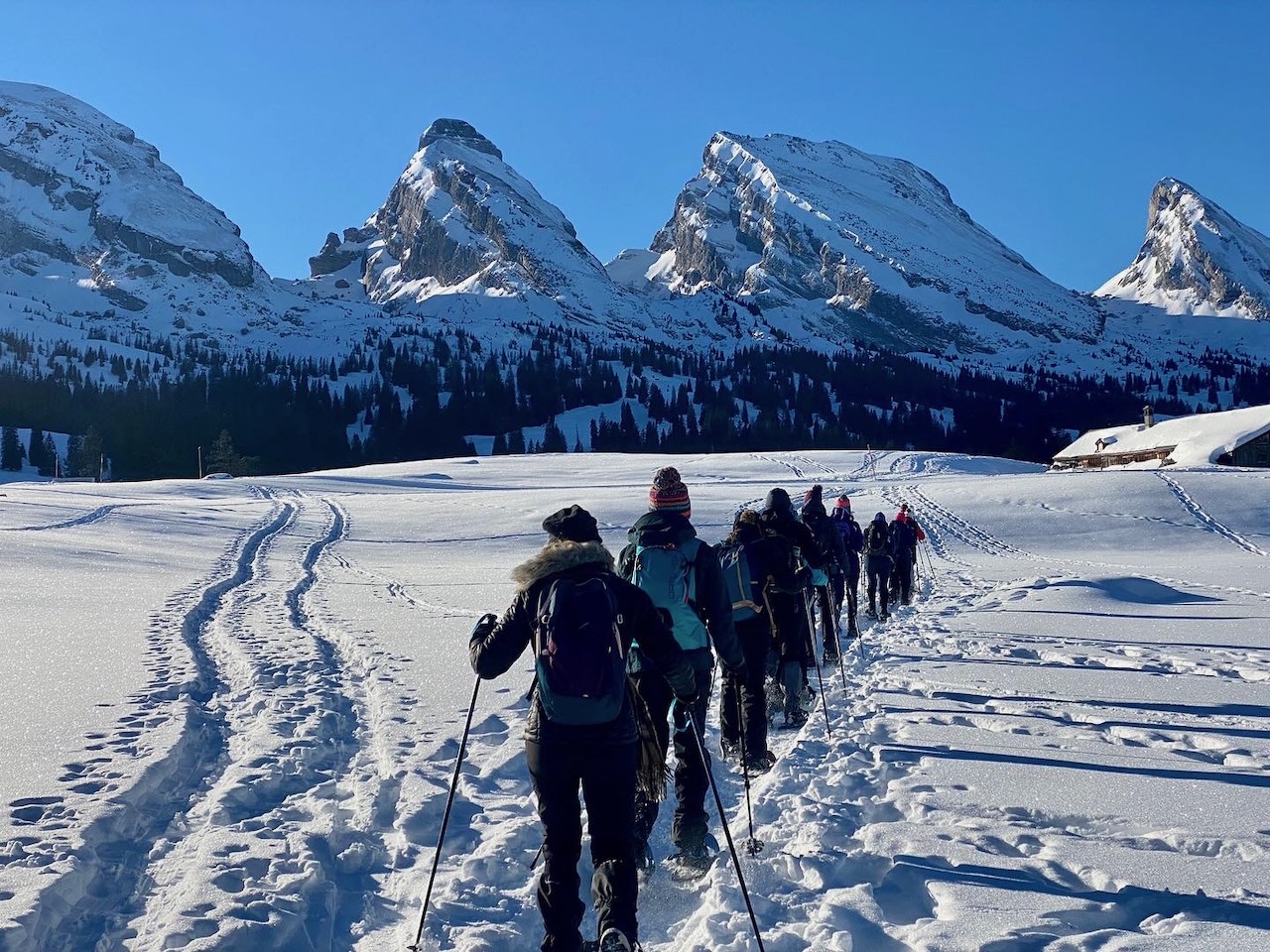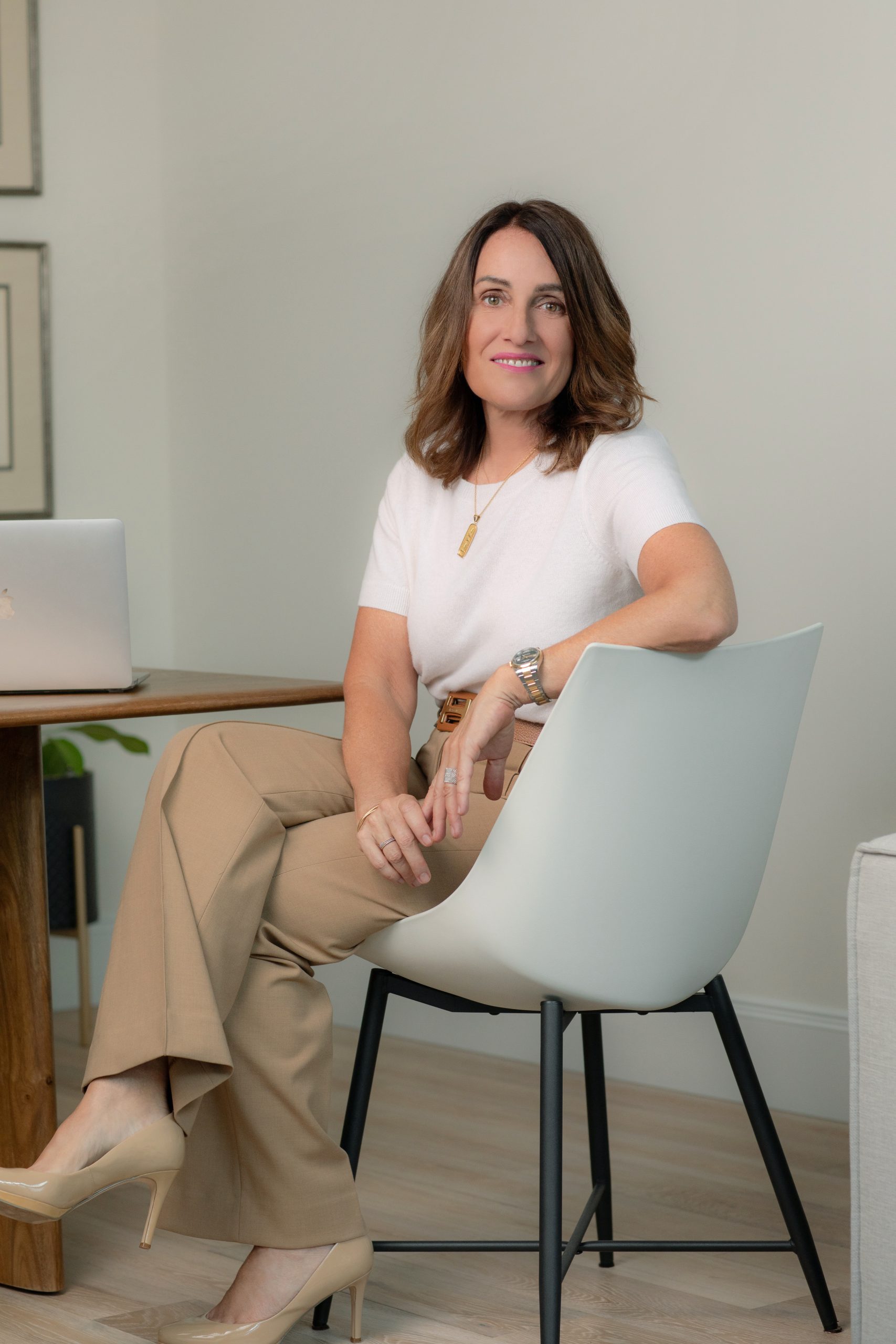Like most of us in middle age and beyond, I believe I am much younger than my age. This fallacy reveals itself when I see or read about someone who is my age and I am certain that the person is older than me. It’s not about who looks older (or younger) rather, the way I perceive myself versus the reality. Much of my perception is based on my sense of humor, which is still quite sophomoric. In addition, since youth, I have possessed a view that my whole life is in front of me teeming with possibility! This orientation most likely causes me to lose track of time.
I may not recognize how old I really am, but I do recognize my wisdom. We all know that wisdom and age don’t necessarily correlate. I know plenty of wise young people. I was not one of them. My wisdom is hard won. Through all the ups and downs of life, I have earned my trust in myself by reflecting on my choices, examining my virtues, and trying to be intentional with what I have learned.
With the start of this new year and all its possibilities, the wise woman I am knows that I don’t have to control situations and events to achieve my goals. Instead, I choose to trust the Universe to show me the way at the right time. Trusting timing by not creating a forced event to give the illusion of control conserves my energy. It’s also a sign of strength because it’s really hard. Wise me has finally gotten the knack. Plant the seeds, sister, do your life, they’ll sprout when they are ready.
The wise woman I am knows how to use energy. Feminine energy is receptive and reflective which is very useful when I may not be able to see exactly where I am headed. I navigate unsure waters knowing that a beautiful horizon awaits. I am a powerful co-creator of this Universe and when the time is right, I invoke masculine energy and take action with determination and focus.
Wise women like me know that we can rest. I don’t always have to be producing something or helping someone to be of value. I am valuable when I make the choice to do nothing. Busy no longer comforts the ego – I’ve worked with it enough to know when to bring it to the fore. As a wise woman, I trust that all my needs will be met because I won’t accept any less.
This wise woman knows that the women who came before are to be revered because they paved the steep and formidable path up the mountain so the women after them could reach higher heights. As I climb, often two steps forward and one step back, I take the lessons I have learned and release their stories. They have no hold. We wise women know this.
It’s no wonder I don’t feel my age. I’m in a sisterhood of young at heart, fearless comfort zone breakers, discerning big-love givers, and never-giver-uppers. No number can capture that. Blessed be for all that we wise women know.
I appreciate it when an online article title captures my curiosity. I am less enthusiastic when I have to sift through a lot of content to sate my curiosity. So, if the title, “Do we really have a life purpose?” piqued your interest…
The short answer is Yes, we really do have a life purpose.
First, we need a common understanding of the term, life purpose. Many people think that life purpose means a single vocation or avocation that we are supposed to discover, pursue, and then actively perform throughout our life. I’ll never forget when I learned that hockey legend Wayne Gretzky knew he wanted to be a hockey player at age six! Lucky Wayne! Purpose in action is different from life’s purpose. I wonder if Gretzky would count hockey as his life purpose, my sense is he would have more to add.
To understand what life purpose is, we must acknowledge this fundamental truth – we are souls who have taken human form. Our soul is imprinted with our purpose for this lifetime. When our soul takes the physical form, it brings the contract made with God, the Universe, or the Divine. The concept of soul or spirit has been part of human society throughout antiquity. The Bible is replete with references to the soul; depicted as inside the body and holds our god-given purpose. Hinduism says that the soul animates the body and is not separate – it’s the driving force within us. Both resonate with me.
Today, most of us know we have a soul or spirit. As humans have evolved, we have transitioned out of survival mode and are blessed with being alive at a time when the collective consciousness has risen. As we evolve as a species, so has our collective consciousness. There are many examples of how we have risen in our collective consciousness. Most people today understand that we are connected to all things – animals and nature are the easiest examples. Anyone who is lucky enough to have a dog or cat knows that we are deeply connected to them. We don’t own them, they aren’t our babies – they are our spiritual companions. Animals have soul contracts, too. They come into our life to teach us unconditional love, compassion, play and countless other lessons.
Science has also helped us understand how soul contracts are formed. Today, Near Death Experiences (NDEs) are rigorously studied at prestigious universities. There are detailed cases of the soul contracting process in NDEs. For many humans, seeing is believing and this helps shift our openness to new beliefs and awareness. These are just a few examples of how the collective consciousness has risen and its impact on our awareness of the nature of our soul.
The most compelling evidence is…
Perhaps the most compelling evidence we know that we have a soul that holds our purpose is we can feel it. It’s almost indescribable when we have these energetic pulls toward something, someone, or some insight. Joseph Campbell called it our bliss and advised us to follow it. We don’t know where these pulls are going to lead but we feel compelled to heed. When my good friend Terri McGuire shared her life purpose story of helping children, she called these pulls “soul whispers”. What a beautiful image!
Our soul whispers and our ego roars!
Where humans get confused regarding life purpose is in the process of being human! This is the fundamental challenge when spirit is in human form. Our soul whispers and our ego roars! The ego wants us to have a set belief system, an identity, keep us safe and always have a plan. So, we try to make life’s purpose become a thing to achieve outside of us. A mountain to climb, a job to succeed in, an identity to embrace. When life’s purpose is so much more than that – it’s the daily acts of love for ourselves by listening to the whispers and following them. One wise woman told me that she had an accident as a child and was not able to participate in sport, and she knew that part of her purpose was to help her father grow in his compassion for others. He was a man whose ego strongly identified with physical strength and performance. She recounted other areas she reflected on her life where she knew she was doing what she came here to do. Simple acts like being a pillar in her small community and being connected to the earth through her lush garden. We turn these whispers into jobs or identities we must complete to be fulfilled. When you are listening to the whispers they tell you the next step and it may manifest into a job, career or status that society approves, but that is not the ultimate goal.
Our soul carries the light, the goodness that we contracted to see out in this lifetime. We must quiet ourselves and listen with no expectations. It’s not easy, because that is the human experience – the paradox of getting out of our own way, really, our own head, to return home to what has been within us the entire time.
When we moved to Switzerland from the USA three years ago, I changed from working full-time to part-time to help our family make the transition to a new country.
I help people for a living and am fortunate that my work is my life purpose. Even with a deep connection to my work, I really enjoy working part-time. For the time being, I’ve decided to keep it that way. I don’t have the stress that I had before being a working mom. Working less allows me to be more present for my family and myself.
So, what does the thinking mind do when life is calm and happy? It conjures problems. To prove my point, I recently said to my close friend Alexa, “Maybe I should work more because Rob (my husband) has most of the financial burden. If I worked more, I could share that responsibility.” Alexa spat out her tea. (This is exactly what a good friend should do when you say something ridiculous.)
Alexa replied, “Who will share your burden of groceries, cooking, feeding and care of animals, kids’ schedules, laundry, social director…. shall I go on?” It’s true. My husband’s career is very demanding and hasn’t allowed for the flexibility mine has. I am the engineer of our family’s Operating System: Coder-In-Chief, responsible for all upgrades and bug fixes.
So, why with a full plate of responsibilities was I questioning my contribution? I had to ask myself, “Do I really believe my domestic contributions and responsibilities aren’t as valuable as a working parent?”
There is a fundamental belief in our society that says, WE ARE WHAT WE EARN. This question is not foreign to stay-at-home parents, teachers, nurses, healthcare workers, and countless other roles in society that are critical but not well-compensated.
When I was working full-time in the USA, I had a firm belief that domestic contributions in a household were as important as financial contributions. My belief was tested as my financial contribution diminished. We’ve all had that happen. We hold an opinion or belief about something and then we have a direct experience (new data) that informs our opinion or belief and with it brings a new perspective.
Whatever your contributions are to society, don’t buy the lie. You are not what you earn, you are so much more.
We all get stuck in life; it happens. Knowing when you are stuck and how to get unstuck is key to leading a fulfilling life.
If you ask someone today what they want out of life, the majority will tell you that they want to eat at a restaurant again! Joking aside, they will say they want to be happy. If you dig deeper into what they mean, they’ll tell you that they want to feel good and be at ease.
Sometimes, we aren’t at ease, and feeling good is elusive. Our work or relationship once-thriving can become unsatisfying. Over time, if dissatisfaction persists, we can feel stuck.
What is the definition of being stuck? It’s the feeling of being not where we are supposed to be. It can also feel like persistent overwhelm or painful dissatisfaction with the current state or situation.
Being stuck can be tricky. To help navigate, here are three common ways we get stuck and remedies for each:
Self-Created Stuck
Self-created stuck is what Buddhists call suffering. Suffering is part of life. A loved one dies and we hurt deeply. The pain of them being gone is real. This type of suffering is part of the human condition. I’m not talking about that kind of suffering; I’m talking about the kind we create ourselves.
The good news is that Self-created suffering is avoidable. It is the mind’s way of not accepting what is. For example, when you deny or don’t accept that something is painful, you create suffering. Or when you expect something to be different than what it is — you create suffering. Let’s look at an easy example. You are in a work meeting and your idea for solving a problem falls flat with your colleagues. You are invested in being right — you feel disrespected and angry that your solution was overlooked. Instead of acknowledging your feelings, you tell yourself it was no big deal. Oh, it doesn’t stop here! You then begin to spend time thinking about how your colleagues’ solutions were terrible! You also create a narrative about how no one listens to you and all the extroverts at the meeting suck up all the time. It’s like a mind map of negative thinking to cover up accepting what happened! This is needless suffering.
Your Inner Purpose is to Awaken It’s As Simple As That
Eckhart Tolle
Remedy for Self-Created Stuck…
Accepting and acknowledging your uncomfortable feelings is crucial. So many times, we brush away uncomfortable truths only to inadvertently give them more power over us and steal our peace of mind.
Instead of becoming the central actor in your own self-created narratives. Use your observing mind to watch your thinking mind and immediately create distance between the narrative and your true Self. You’ll notice that you are not your thoughts and often, the scenarios you have created keep you from peace.
Comparison Stuck
This is another flavor of Self-created Stuck. Because it’s so potent, it deserves its own distinction. I have my own powerful personal experience with Comparison Stuck. Years ago, I attended a conference in my field of Organizational Psychology. The field is broad and this particular conference focused on an area that I don’t have a lot of experience in or obviously, proven skill!
For two days after the conference, I felt anxious. I was feeling low and began questioning my competence as a consultant. Luckily, on day three, I had an insight that if I had not attended this conference, I would not be so miserable. Not that I shouldn’t have attended the conference, but literally, that I allowed it to change me. My consulting ability hadn’t changed in those three days. But, how I was thinking about myself did. I was comparing myself to others who specialized in an area that was not a keen interest of mine. I was creating my own suffering. There’s a saying in yoga, “Stay on your own mat, in your own practice.” This means that everything outside of your mat has nothing to do with you, so don’t give it your energy.
Remedy for Comparison Stuck
Stay on your own mat! Don’t look at the person next to you doing the handstand or super-flexible twisty pose.When you compare, you surrender your peace of mind and what makes you unique. Just focus on your own skills, passion, and personal goals.
Dissatisfied Stuck
If your health, relationship, business, job gets stuck, it becomes a pressure point. These key areas are part of your identity, so it’s understandable you can suffer when they falter.
Everyone has real challenges in life that require them to face adversity, make changes, and sometimes surrender to the illusion of control. For example, your relationships are constantly evolving, and sometimes, you resist the evolution or your partner does — and you feel stuck. Your career or job may have periods where you feel static or uninspired. And, if the block persists you can suffer.
How to Remedy Disassified Stuck
A key starting point for any “stuckness” is curiosity. Being stuck can feel confusing and frustrating. And, often in your haste to release the pressure, you can make some bad decisions. These are what mid-life crises are all about. People become stuck, feel pressure to change something and they change their external environment; not their internal one. Resist the temptation to push on any rock, pull any lever. Be curious about what is going on with you.
“Between stimulus and response, there is a space. In that space is our power to choose our response. In our response lies our growth and our freedom.”
Viktor Frankl
Calmly and curiously delve into that stuck point. Sometimes, the way will be difficult. You are not alone! Take care of yourself and invest in a therapist, coach, or support group. Read books that inspire you or advance your understanding of your situation.
At the beginning of this piece, I said that knowing when you are stuck and how to get unstuck is key to leading a fulfilling life.
Fulfillment means you see and experience your life as an adventure. When setbacks occur, you don’t let them stop you – you work through them.
Do not succumb to the resistance that can accompany hard-won growth. Life is dynamic and ever-flowing and sometimes, you get stuck. But, the tools you learn to get back into flow — as well as what you learn about yourself — are truly invaluable.
Jam is our skills applied to our passion. It gives us meaning which is essential for our survival. A question we have all asked is, “What is a meaningful life?” Because we are each unique, the answer varies for all of us. The poet Rumi says, “Everyone has been made for some particular work, and the desire for that work has been put in every heart.” That “particular work” is our Jam.






